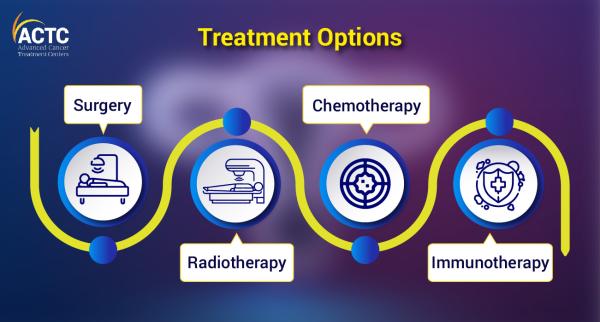| Treatment for endometrial cancer depends on the stage and type of cancer, as well as the patient's overall health. Options include surgery (hysterectomy with or without removal of fallopian tubes and ovaries), radiation therapy (external beam or brachytherapy), chemotherapy, hormone therapy (often used for certain types and stages), and targeted therapy (using drugs that specifically target cancer cells). The choice of treatment is usually determined by a multidisciplinary team of oncologists and other specialists to create a personalized treatment plan. Treatment for endometrial cancer depends on several factors, including the stage of the cancer (how far it has spread), the type of cancer cells, the patient's overall health, and her preferences. Treatment options generally include: - Surgery: This is often the primary treatment, especially for early-stage endometrial cancer. Surgical options may include:
- Hysterectomy: Removal of the uterus. This is the most common surgical procedure for endometrial cancer.
- Salpingo-oophorectomy: Removal of the fallopian tubes and ovaries. This is often done along with a hysterectomy, especially in postmenopausal women or if there's a high risk of ovarian cancer.
- Lymphadenectomy: Removal of lymph nodes to check for cancer spread.
- Staging surgery: A more extensive surgery to determine the precise stage of the cancer.
- Radiation therapy: This uses high-energy rays to kill cancer cells. It can be used before surgery (to shrink the tumor), after surgery (to kill any remaining cancer cells), or as the primary treatment for some patients who are not good candidates for surgery. It can be delivered externally (external beam radiation) or internally (brachytherapy).
- Chemotherapy: This uses drugs to kill cancer cells. It's often used for advanced-stage endometrial cancer or when the cancer has recurred. Various chemotherapy drugs may be used, often in combination.
- Hormone therapy: This uses medications to block the effects of hormones, such as estrogen, which can fuel the growth of some endometrial cancers. It's often used for hormone-receptor-positive endometrial cancers, especially in advanced stages. Examples include tamoxifen and aromatase inhibitors.
- Targeted therapy: These drugs target specific molecules involved in cancer growth. They are used in certain situations, often in combination with other treatments.
- Combination therapy: Many women receive a combination of these treatments, depending on their individual circumstances. For instance, a patient might have surgery followed by radiation therapy or chemotherapy.
It's crucial to understand that this information is for general knowledge only and should not be considered medical advice. The specific treatment plan for endometrial cancer is always determined by an oncologist (a cancer specialist) in consultation with the patient, considering all individual factors. Anyone diagnosed with endometrial cancer needs to work closely with their healthcare team to develop a personalized treatment plan.

Tags: Endometrial Cancer Endometrial Cancer Treatment  
|  1,308
1,308  0
0  0
0  3350
3350 